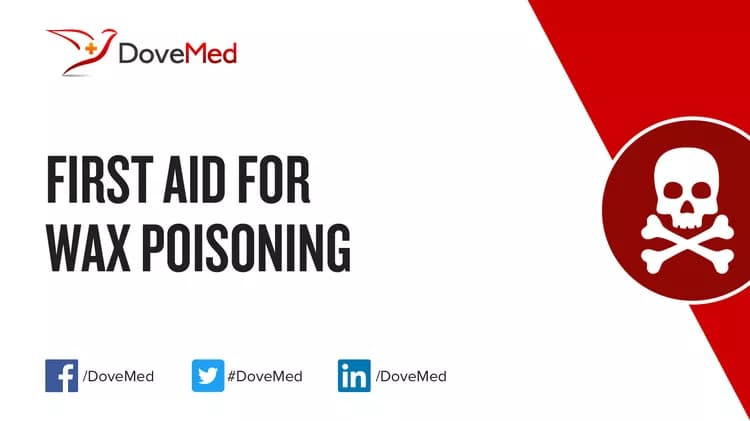What is Wax Poisoning?
- Waxes form a group of greasy organic compounds that are derived naturally (from plants and animals) or synthetically (from petroleum or through other processes). They have lower melting points and are insoluble in water
- Waxes are found in candles, crayons, sealing agents, wood coatings, polishing agents, cosmetics, and have applications in the sports industry, food industry, etc.
- Wax Poisoning is the accidental or intentional intake (consumption) of wax products
- The condition is diagnosed based upon the clinical history, combination of signs and symptoms, and additional tests (that may include, in some cases, radiological studies and laboratory tests)
Wax Poisoning may be also referred to as Crayons Poisoning and Wax Toxicity.
What are the Causes of Wax Poisoning?
- Wax Poisoning is caused by eating or swallowing wax products such as candles or crayons
- This intake could be accidental, or in some cases intentional, to bring self-harm
- Generally, waxes are non-toxic substances; however, certain compounds and synthetic chemicals/colors added to them may be toxic
Note: The compound can interact with other prescribed or non-prescribed medications in the body. Such interactions may enhance the therapeutic effects of other medications being taken, resulting in undesired side effects.
What are the Signs and Symptoms of Wax Poisoning?
The signs and symptoms of Wax Poisoning can vary from one individual to another. It may be mild in some and severe in others. The signs and symptoms may include:
- Vomiting
- Stomach and abdominal pain
- Obstruction of the bowel, if significant quantities are consumed
Note: Consuming small amounts of wax is usually not considered to be very harmful; for, it is generally excreted through one’s stool.
How is First Aid administered for Wax Poisoning?
First Aid tips for Wax Poisoning:
- Call 911 or your local emergency help number, for emergency assistance
- Call the Poison Control Center at 1-800-222-1222 (or your local poison control center) for further instructions
- Provide them with information such as the compound taken, quantity and time of ingestion, age, weight and general health status of affected individual
- Confirm that the airways are protected; also, ensure breathing and the presence of pulse
- Clean the mouth to remove any remaining pieces; wipe mouth with a wet cloth
- Unless instructed by a healthcare professional, DO NOT induce vomiting in the affected individual
- Take individual to emergency room (ER) for further treatment
- Always try to take the substance to the ER
Generally, Wax Poisoning is a non-serious condition. With appropriate and adequate home care, the individual may recover completely, without any severe symptoms being noted.
In case of severe symptoms, emergency health care may be required. The emergency medical professional might perform the following steps towards treating the condition:
- Monitor vital signs
- Medically manage symptoms and provide breathing support, if necessary
- Administer fluids by an intravenous drip line, if necessary
Who should administer First Aid for Wax Poisoning?
First aid for Wax Poisoning is administered by healthcare professionals.
- The individual who is affected, or someone near, should call 911 for emergency assistance (or the local emergency number)
- They should also call the poison control center at 1-800-222-1222 (or the local poison control center) and follow instructions
What is the Prognosis of Wax Poisoning?
- The prognosis of Wax Poisoning is dependent on the amount of substance consumed, time between consumption and treatment, severity of the symptoms, as well as general health status of the patient
- If the individual can recover from the symptoms, with appropriate medication and early support, the outcome is generally good
- Wax is a non-poisonous substance, and hence, the condition is not very dangerous. In a majority of cases, early recovery is reported
In general, toxicities are common situations in the emergency departments. A majority of the cases are often not fatal, when appropriate treatment is given.
How can Wax Poisoning be Prevented?
Wax Poisoning can be prevented by:
- Always following instructions for usage of any health or cosmetic products
- Keeping cosmetics, medications, and other healthcare products out of reach of children in child-proof containers
- Supervising young children playing with crayons
- Being aware of basic first aid steps in case of an emergency (such as inadvertent poisoning)
What are certain Crucial Steps to be followed?
- Call 911 (or your local emergency number) for emergency assistance, if symptoms are life-threatening
- Call Poison Control Center at 1-800-222-1222 (or the local poison control center) and follow the recommend steps
- It would be helpful if the following information is readily available:
- Type, amount and time of consumption of the substance
- Age and weight of the individual
- And, the overall health status of the individual
Related Articles
Test Your Knowledge
Asked by users
Related Centers
Related Specialties
Related Physicians
Related Procedures
Related Resources
Join DoveHubs
and connect with fellow professionals


0 Comments
Please log in to post a comment.